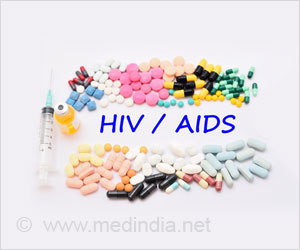A medicine for parasitic infections called mitefosine appears to be effective in attacking the human immunodeficiency virus (HIV) too.
A medicine for parasitic infections called mitefosine appears to be effective in attacking the human immunodeficiency virus (HIV) too, say researchers.
Baek Kim, an associate professor in the Department of Microbiology & Immunology at the University of Rochester Medical Center, says that the medicine may reverse the mechanism by which HIV attains its deadly longevity.Previous studies had revealed that HIV has “learned” to hide out in certain human cells where it is safe from the body’s counterattack. Operating from these havens, the virus slowly builds its numbers over more than a decade until it finally becomes capable of dismantling human immune defences.
In the end stages, this process leaves patients vulnerable to the opportunistic infections of AIDS.
Past studies had also established that HIV-infected macrophages, cells within the tissues that originate from specific white blood cells called monocytes, live abnormally long, and that the long life may be related to the presence of the HIV protein transactivator (tat).
In the current study, Kim’s team found the exact mechanism by which HIV turns on a series of cell survival signals in human macrophages, which is based on tat-related manipulation of the PI3K/Akt kinase pathway.
Phosphatidylinositol 3 kinases (PI3K) are enzymes that turn on another enzyme, Akt, to prevent cell suicide and extend cell lifespan.
Advertisement
They also observed that the presence of HIV tat in infected macrophages lowers PTEN levels by 40 per cent, enabling the PI3K/Akt pathway to kick back on and keep macrophages alive.
“Miltefosine puts an end to the long lives of HIV-infected macrophages,” Kim said.
“The fact that it is already used in humans could accelerate the process of seeking government approval for a new, anti-HIV use for miltefosine, or something like it. In the next phase, we will conduct studies seeking to show that Akt inhibition ends the survival of HIV-infected macrophage reservoirs under real-life conditions,” the researcher added.
The study, conducted in collaboration with researchers from the University of Utah School of Medicine, has been published online in the open access journal Retrovirology.
Source-ANI
SRM/L











